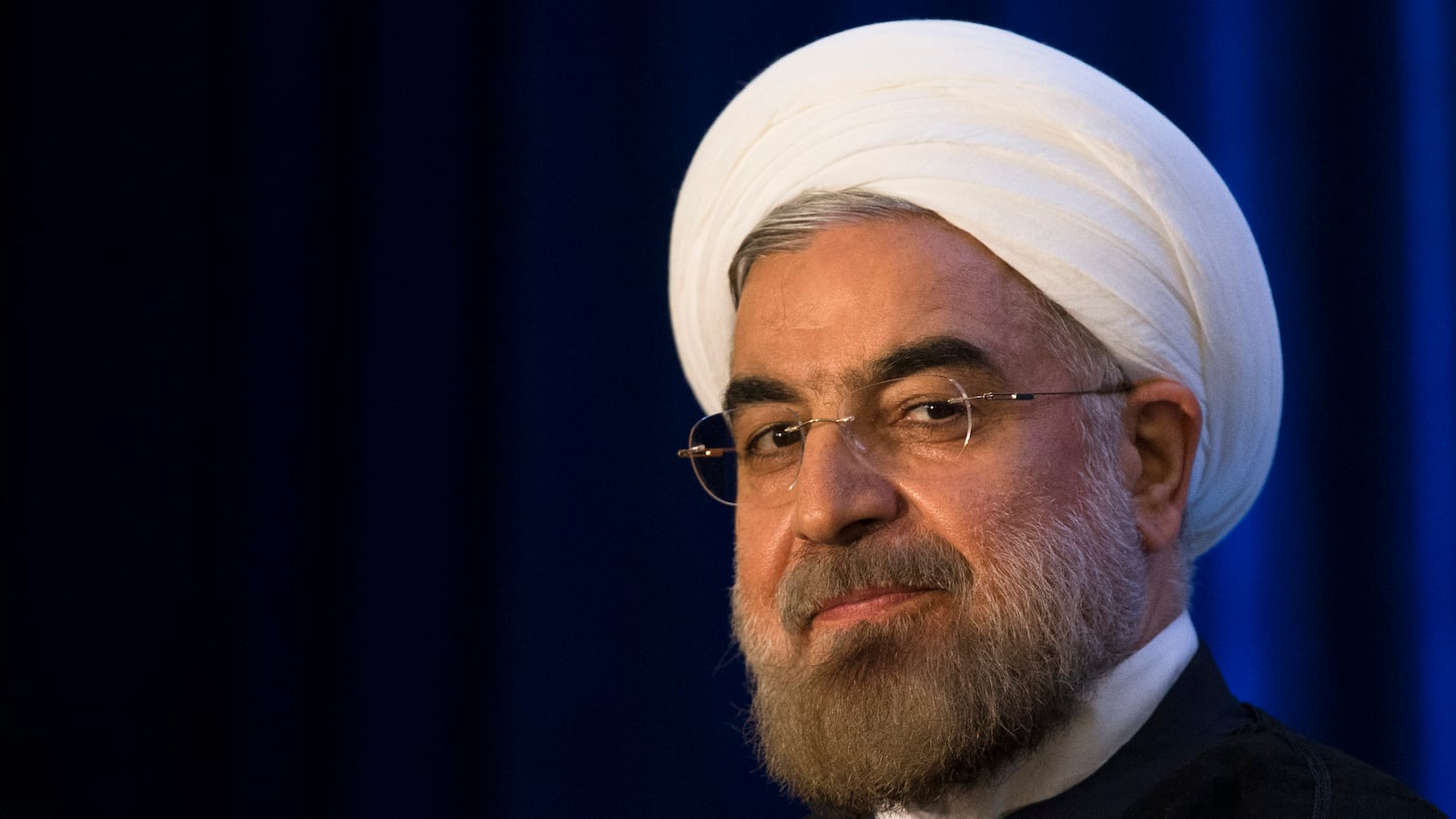As nuclear talks are set to begin in Geneva between Iran and the world's great powers, America wants to see a sign of good faith. This could kick off a round of carefully calibrated steps as Iran reins in its nuclear program to guarantee it won't seek the bomb and the United States ratchets down sanctions.

The Obama administration had earlier this year already backed away from its absolutist position on Iran's making of nuclear fuel, which can power civilian reactors but also be used to nuclear weapons. The official U.S. position to this day is that Iran must suspend all uranium enrichment in exchange for sanctions relief. But Washington is now ready to offer some relief if Iran begins to cut its nuclear work by suspending the making of medium-enriched uranium. Still to be dealt with is Iran's making low-enriched uranium, of which it has large stockpiles.
Hope for a solution to the crisis rose after U.S. President Barack Obama and Iranian President Hassan Rouhani spoke on the phone in September in the highest-level contact between the United States and Iran since the Islamic Revolution in Iran in 1979.
The goal for the Obama administration is to make sure that Iran guarantees it will not use fissile material to make an atomic bomb and to give room for negotiations by putting more time on the clock until Iran can make nuclear weapons.
“We are prepared to do what it takes to prevent Iran from obtaining a nuclear weapon, and over the next several days, we will begin to judge whether we have a chance today to begin a new diplomatic process that ultimately resolves all of the international community’s concerns with Iran’s nuclear program,” said a senior US administration official, adding, “we have always believed that we need to put some time on the clock, that there needs to be a confidence-building step that not only starts to get over the deep mistrust [between Iran and the United States] that President Obama spoke of so eloquently, but also constrains Iran’s program today and perhaps even takes it back a notch so that there is time on the clock to achieve that comprehensive agreement.”
The problem, said the official, is that “in the past, Iran has taken the negotiated time and just kept moving forward with its nuclear program. And we cannot continue for that to be the case.”
This is a hard equation. Uranium enrichment makes what can be power reactor fuel but also the explosive core of atom bombs. The official U.S. position is that Iran must suspend enrichment. But the Iranians have, over the decade this crisis has lasted, managed to create facts on the ground. From a start in 2002 when they basically had no centrifuges enriching uranium, merely some test machines, they now have over 10,000 centrifuges turning and have even installed lines of advanced machines which can enrich some three times more quickly than the basic models. These have not yet been loaded with nuclear fuel. But Iran has just the same amassed a stockpile of enriched uranium, which could be used to make five or more atomic bombs.
Iran feels it was tricked when it suspended enrichment from 2003-2005 and has said it will never suspend again. But it has offered to suspend making medium-level enriched uranium (up to 20 percent enriched for the U-235 isotope), which is closer to weapon-grade of over 90-percent enriched than the low-enriched variety of up to five percent used for reactor fuel. Iran wants to be compensated for a step down from 20 percent enrichment by having sanctions lifted—sanctions which have devastated the Iranian economy by cutting Iran’s oil sales by over half and restricting Iran’s ability to do international banking and thus to trade.
However, the United States and its negotiating partners, Britain, China, France, Germany and Russia, want this stepping down from medium-level enrichment to be a confidence-building measure to show Iran is serious about a deal and to clear the way to talks on lifting sanctions. This is the face-off that has so far stymied a first step toward resolving the crisis.
The other great concern of Iran’s is having its right to enrich assured. This would mean it could continue enriching uranium, even if it limited the number of centrifuges turning and limited its stockpiles. The senior U.S. administration official told reporters Monday that the goal was to make sure Iran would not have enough enriched uranium on hand to break out to make a bomb. It is not clear if this could lead to a modification of stated U.S. policy that Iran should not have “one centrifuge turning.” Most analysts, however, think it is too late to take away all enrichment from Iran. Hardliners, and Israel, feel that allowing Iran to enrich means it will retain the capability to make the bomb, and that this cannot be allowed.
The U.S. push now is for "sanctions relief ... targeted proportional to what Iran puts on the table. ... We are looking at steps that obviously won’t undermine our core sanctions regime,” the U.S. official said.
It is not clear if Iran will accept such a limited approach. Hope is high after the rapprochement in September when Obama and Rouhani spoke. The Geneva meeting, which begins Tuesday, is the first chance to test that hope.






